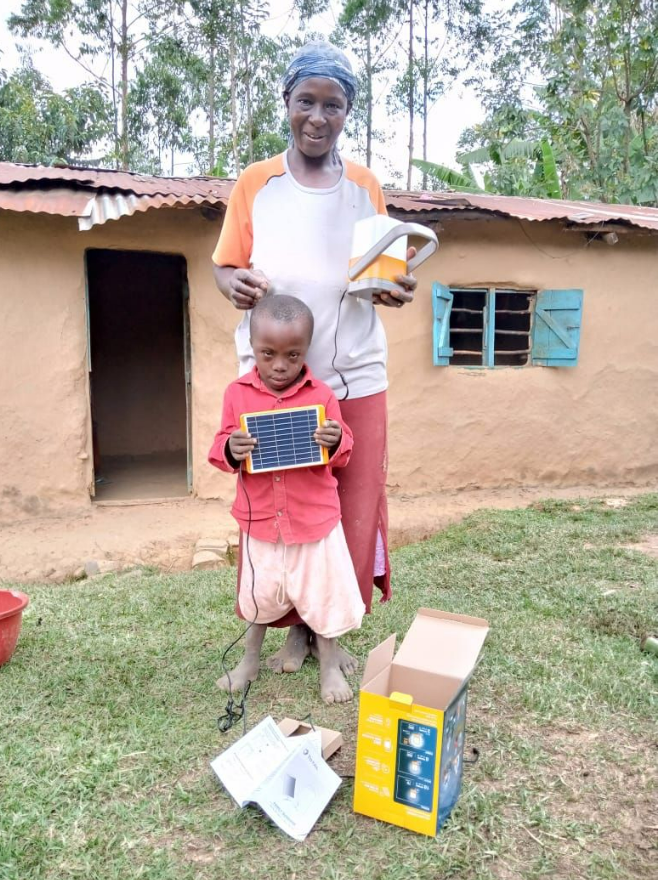‘Truly, I say to you, as you did it to one of the least of these my brothers, you did it to me.’
Matthew 25:40
News and Stories
CDFI Provides LPG Stoves to 265 Families in Kenya
February 27, 2025
By Robert H. Klima
When we give generously to those in need, there are often fruits revealed which could not have been anticipated.
This past Christmas, CDFI wanted to do something special for the 265 disabled children and their families which we support in Kenya. The previous year we were able to provide bedding to the children so that they would not have to sleep on the dirt floor or a thin mat. This year we believed that God was calling us to provide liquid petroleum gas stoves to everyone in the program.
We had seen the difference which having a stove meant to the few families who had them. These families live in simple mud houses with no plumbing, no electricity, and no kitchen. Their meals, which usually consist of little more than corn porridge, are cooked over open fires which is time consuming and difficult. The wood which is needed is expensive and often not readily available, and produces smoke and soot which can be harmful. The gas stoves are less expensive, easy to use, and quick to light. Each has a single burner and are smaller than the average outdoor grill we are used to in the U.S.
So, we made our generous donors aware of the need, and once again, they came through and we had enough funds to buy a stove for everyone!
Here are some of the comments which we received from the parents who received a stove.
“The gas stove is just a miracle in my home where everyone had given up on my daughter who is a cerebral palsy warrior.”
“My husband left us. We thought that something like the gas stove which we received was a dream which would never come to pass. I never knew that God would use a connection through my disabled child to provide us with a gas stove.”
“I have seen God in this gift. I appreciate my daughter’s sponsor and others who made it possible to get me a gas stove. This has transformed my thoughts and perspective on the special ability in my daughter who cannot even speak or walk. She is the reason for all the blessings I receive in my home.”
“I am free from smoke and soot in my little house. Now I have a stove that very few in my neighborhood can afford. Thank you so much to our sponsors. Be blessed abundantly.”
“Being a single father has been a great challenge. Fending for my son and making sure that I am on time with his meals was not an easy thing. Then ‘boom’ during our Christmas gathering, parents of children in the CDFI program received a green card showing a picture of a gas stove and a message that the gas stove was on its way. We were so happy to learn about this kind thought.”
“When we were at our January gathering, we saw a vehicle arrive with not only gas stoves, but pans also. This has made it very easy for me to make quick meals for my son who eats very tiny meals in frequent intervals.”
“The gas stoves have elevated my status as a rich father of a child with disabilities. I honor my son more for this divine connection. The gas stove was a miracle to parents of children with disabilities. We are so honored. May God bless you our global partners and sponsors. May you never lack.”
Do you see what these parents are saying? Your gift has given them a new appreciation for the value and importance of their child. And it has brought them closer to God. The world often disregards these children and treats them as outcasts, which brings the words of the Apostle Paul frequently to mind:
“God chose what is foolish in the world to shame the wise; God chose what is weak in the world to shame the strong; God chose what is low and despised in the world, even things that are not, to bring to nothing things that are, so that no human being might boast in the presence of God.” 1 Corinthians 1:27-29

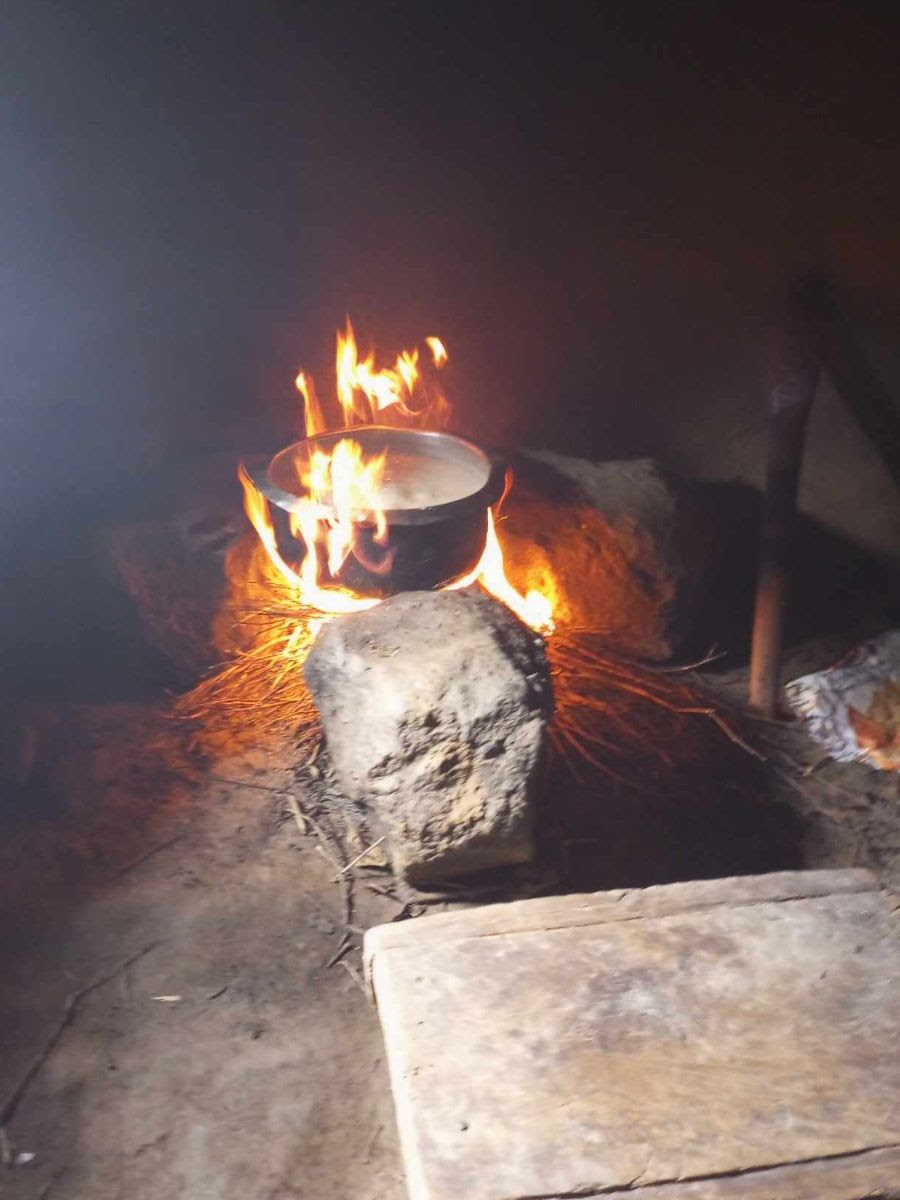
A Season of Sharing Tale:
The Story of Jeremiah and Martin
January 17, 2025
By Robert H. Klima
As you may know, sponsorship is a critical component of serving the medical, educational, and advocacy needs of our children in Kenya. It’s also an opportunity to forge a special relationship with an individual child, knowing that you’re contributing to his or her wellbeing and giving them an opportunity for a more hopeful and promising future.
A little over a year ago, we invited teens from several churches, to become sponsors for children in our Kenya Program. We thought the experience would be a meaningful way for our youth to develop a deeper understanding of CDFI’s mission and how God continues to work through their lives, giving them a greater appreciation of how they can have a powerful impact on the lives of others.
We also believed it would offer them a chance to further cultivate responsibility and empathy by building rapport with youth thousands of miles away—youth whose lives are marked by disabilities and hardships.
A total of thirty-eight teens decided to participate. This story highlights the special relationship that developed between two teenage boys, Jeremiah and Martin. And it also underscores the many tangible and intangible rewards that sponsorship can bring for both the sponsor and the child in Kenya.
Jeremiah is fourteen years old and lives with his family in Haymarket, VA. He was eager to participate and foster a supportive friendship with Martin, who is eighteen and deaf. Martin and his family are Christians, and they depend on the income from their little farm and chickens from their microenterprise for their daily provisions.
When considering sponsorship, Jeremiah noticed that Martin likes soccer, as he does, and Martin was a teenager too. Jeremiah was also very glad to know Martin and his mom are followers of Christ, just like Jeremiah and his family are.
Over the past year, Jeremiah and Martin have formed a budding friendship, communicating with each other every other month. They share stories about their lives and interests, including their hopes for the future. What’s been remarkable is their ability to connect despite the miles and many differences in their lives and experiences.
This past holiday season, Jeremiah immediately chose to send extra money to Martin because of his connection to him. This extra money allowed Martin to get new sneakers, jeans, and T-shirts. Martin and his family also went grocery shopping with some of the extra money, which made it possible for them to buy fresh meat and vegetables at the market.
Sponsorship is a two-way street, and the results can be life changing for both parties. For Jeremiah, he’s realized that deaf people—and others with a disability—can be really happy! He says it’s “cool” that he can help just by writing emails and sending pictures. It’s been a good experience to step in someone else’s shoes and to remain humble. Jeremiah has become more aware of the needs of someone in another culture, and he’s having new ideas about a life and career that benefits more than himself.
And for Jeremiah’s family, the experience has helped them to be intentional about their commitment to pray and communicate. Since it can be easy to forget about something or someone that is far away, they place reminders, both electronic and physical, in their daily lives to remember, pray, and communicate with Martin.
As for Martin, sponsorship has truly transformed his life. It’s made payment of his medical care and school fees, including his uniforms, possible. He also bought bedding, solar lights, and Christmas food, and his family is awaiting a gas stove.
Another benefit has been the ability to purchase fertilizers and seeds for his family’s farm, which further supports their economic wellbeing. Martin is hopeful that his mother will be able to buy a cow so she can sell the milk, increasing the self-sufficiency of the farm and ensuring the family will have enough to eat.
At CDFI, we are constantly reminded that human connection is at the core of sponsorship, and it’s often reflected upon as a tremendous gift that can touch lives in unexpected and profound ways. As with Jeremiah and Martin, the boys look forward to the photos, videos, and emails that enable them to build a unique friendship that transcends their individual circumstances.
Their “season of sharing” is truly a gift of giving that we hope will stay with Jeremiah and Martin throughout their lives.
We hope you’ve enjoyed learning a bit more about what it means to sponsor a child and how rewarding it can also be for you and your family. We continue to be humbled and grateful for all of our supporters this past year, especially the youth who chose to participate in our Kenya Program. If you’ve been considering helping a special child through sponsorship, now is a great time to do so!
If you have specific questions about sponsorship please contact our
Sponsorship Director- Jill Moser @ jillcdfi@gmail.com
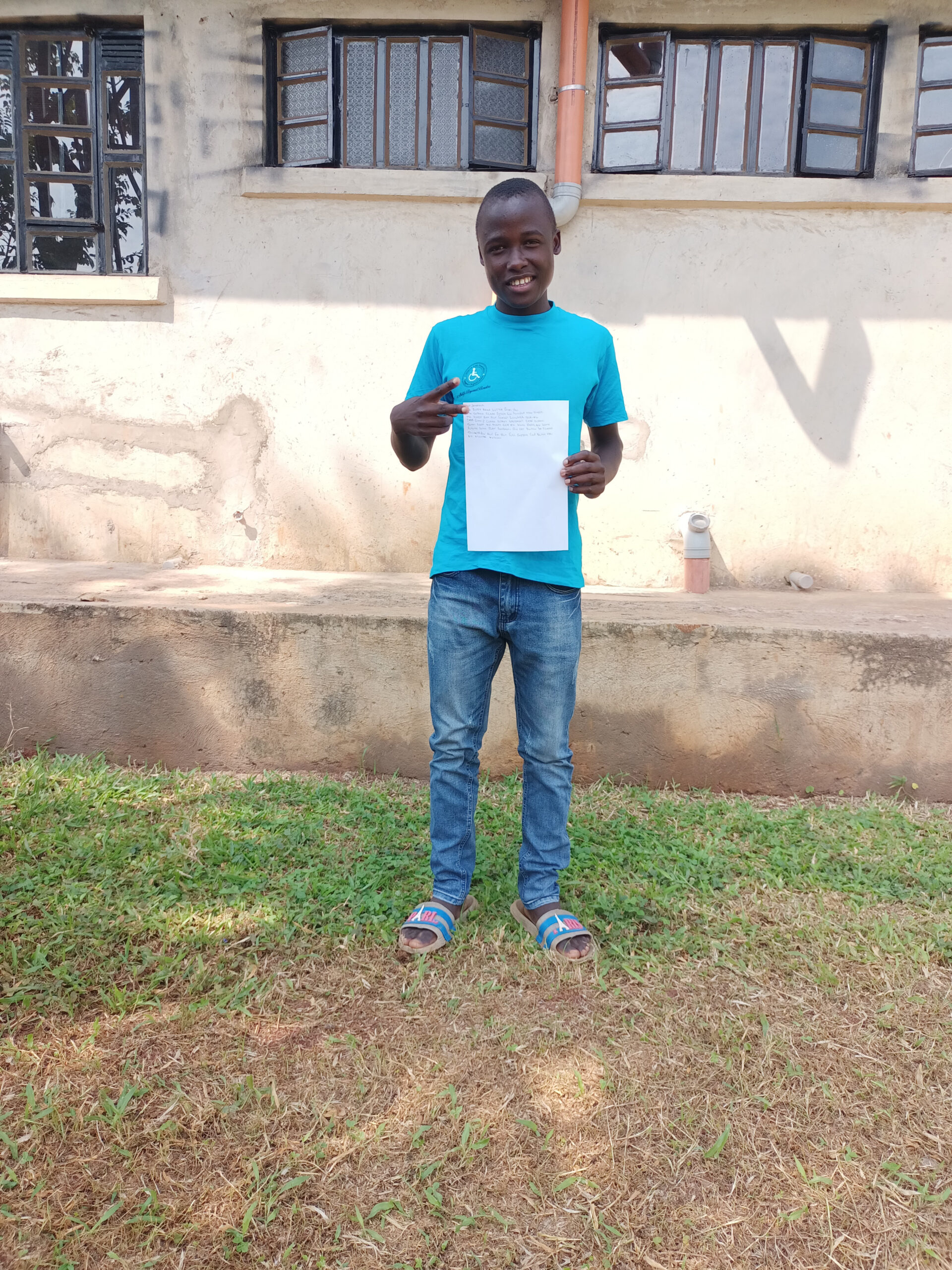


CDFI Provides 261 Solar Lights in Kenya
July 23, 2024
By Robert H. Klima
The families which we serve in Kenya live in small homes constructed out of mud and have no electricity and no plumbing.
In order to have some light at night, those who can afford it burn simple kerosene lamps. But kerosene is expensive, and many cannot afford it on their modest incomes. Also, kerosene lamps produce harmful fumes and soot.
Three years ago, CDFI was able to provide solar lights for the families in the program at that time. But the number of families in the program has increased significantly since then and most of the lights provided needed to be replaced. Through a generous donation, CDFI has recently purchased and distributed new solar lights to every family in the program and also to our ten program staff.
Just one hour of sunlight will charge the lamp sufficiently to produce eight hours of light. This serves the disabled children in our program by allowing them to be better cared for and read to in the evenings.
Jesus said that He is the light of the world, and He also taught that we are lights in the world. By providing these solar lights, we have been able to share the light of Jesus in a very practical way.

CDFI Sponsors Special Olympics Team
June 26, 2024
By Fayonna Boothe
Special Olympics Summer Games were held in Kingston, Jamaica June 21 and 22, 2024.
CDFI sponsored nine special athletes from Westhaven Children’s Home and arranged for transportation, housing and meals, as well as uniforms for the athletes. Three teachers, two caregivers and a driver also had to be provided. The students participated in Bocce Ball and Track and Field events.
The Bocce Ball Team made us proud by gaining 1 st place and receiving two gold medals for Kimoy and Rhianna. Kerith and Nyjoke came in 4 th place.
In Track and Field, students participated in the 100 Meter race. Sheldon came in second and received the silver medal. Shelly Ann came in third and received the bronze medal. Tayshawn and Romaine came in sixth place. Ruebyn came in fourth in the Soft Ball Throw.
The team and staff spent the night at a Guest House in Kingston. The students did very well and everyone was encouraged by their participation.
This would not have been possible without the support of CDFI.

Report from Dwayne Welds, Teacher Jamaica
May 20, 2024
By Dwayne Welds
When I was rehired by CDFI almost one year ago, I was specifically tasked with providing stimulation to the most severely disabled children at Westhaven Children’s Home. These are non-ambulatory children who are impaired physically. Most are also impaired mentally. They had been largely confined to their cottages and were receiving little interaction. CDFI saw the need to focus upon the quality of life for these children. And that is why I was rehired.
A program was developed which caters to the emotional wellbeing of the children, whereby they receive several types of therapy.
One of these is music therapy. Music is played for them to listen to which soothes their mind and awakens their interest and curiosity. It has been shown that classical music particularly has this effect. The music is chosen to be soothing and not the type with loud or sudden sounds.
We also provide nature walks. The children are taken for rides in their wheel chairs which provides a positive change in their routine. Getting them out of their beds and moving around in the sunlight and open air is something which they really enjoy.
At other times, they are taken from their beds and placed on mattresses on the porches of the cottages or on the grass in front of the cottages. This makes them more aware of what is going on around them at Westhaven.
These children also receive individual interaction through story reading with discussions around pictures and phonetic activities, which is the correlation between words and pictures.
One primary activity is audio visual stimulation, which they very much enjoy. A portable dvd player with singalong songs works wonders for many of these children, and they enjoy it very much. Songs with Christian themes are chosen, to help to build faith on whatever level they may be capable of. We also pray with and for them.
Some of these chldren are able to utilize crayons and coloring books with assistance. Others find simple things like blowing bubbles to be fascinating.
All of these things evoke happy responses. They smile and laugh, showing a level of excitement and happiness, which is priceless.
Because of the limitations of what the caregivers are able to provide, my engagement in accordance with the instructions received from CDFI has made a great difference in the lives of these most disabled children, who had, all too often, been neglected. It is a great satisfaction to me to be able to provide this therapy and compassionate care in the name of Jesus.



CDFI Teen Sponsorship
May 10, 2024
By Jill Moser
In the Fall of 2023, a generous donor approached CDFI with the offer to financially sponsor 62 children in the Kenya program. The Lord had clearly moved in this donor’s heart and we were overwhelmed with thankfulness that these children were now financially supported. The opportunity we now faced was who would be responsible for the relationship aspect of each 62 sponsorships.
The solution was first suggested by a teenager at a local Northern Virginia church. The idea was to present the unique opportunity of being able to sponsor a child in Kenya, without any financial obligation, to Student Ministry teenagers at various local churches. We were excited to give teenagers the chance to not only learn about children in another country, but to also open their eyes to the needs of individuals with disabilities.
We first launched The Teen Sponsorship program at Living Hope Church in Warrenton, Virginia. Nine teens said yes to sponsorship and began making introductory videos and writing letters to their sponsored children. We then visited Park Valley Church in Haymarket, Virginia, and an additional eighteen teens became sponsors. We ended our quest for matching teens to children at Chapel Springs Church in Bristow, Virginia, where thirty-five teens said yes to sponsorship. All of 62 children have now been matched with a teen sponsor.
The commitment to sponsorship came with a few expectations for the teens. First and foremost, we asked the students to commit to praying for their sponsored children and their families. We also asked each teen to create a short video, introducing themselves and sharing about their life here in the US. It’s been heartwarming to see the videos that the students have submitted. One precious video included two brothers singing Amazing Grace to their sponsored child. Others have included family members and pets. In return, teens have begun to receive updates with videos of their sponsored children watching and responding to the introductory videos. As the program continues, the teens are expected to stay in touch by writing letters or using other creative means to continue developing their relationships. As this program unfolds and grows, we pray the Holy Spirit would lead the students to fulfill their commitment and foster a love for sponsorship as they develop their relationships with children with disabilities in Kenya.


CDFI Partners with Hope Mobility to Provide Wheelchairs for 100 Disabled Children
May 7, 2024
By Robert Klima
Hope Mobility, a charity with offices in Kenya, has offered to donate 100 wheelchairs to children in the CDFI Program. This is the number of the children in our program who still need wheelchairs. Because these children cannot walk, their mothers or grandmothers have to carry them on their backs. Having suitable wheelchairs would not only remove the burden of carrying the child but would enable the child to get out of the home more often for various important needs and opportunities.
CDFI was asked to partner with Hope Mobility because merely providing the wheelchairs is not all that is needed. Each of the chairs must be carefully fitted for the needs of every child. This requires careful measuring and modification of chairs with special parts and equipment as needed. We were asked to provide for the housing, meals and transportation for the team from Hope Mobility and to pay for the special parts and equipment necessary.
Through a generous donation, CDFI has been able to meet this challenge. The team from Hope Mobility is scheduled to do all of the measuring and fitting in June and to return with the chairs and all parts necessary to complete the project in August.
We thank God for this opportunity. CDFI is pleased to partner with another charity to meet this important need.

CDFI Funds Sports Day at Westhaven Children’s Home
March 16, 2024
By Fayonna Booth
Every year, CDFI provides the funds for Sport’s Day at Westhaven Children’s Home in Jamaica. This year, the event was held on March 12th and 13th. It is a two-day event which the wards very much look forward to.
All of the children who are able to participate are separated into two teams, the Beth House and the Hope House, named after two of the founders of CDFI. They proudly wear T Shirts with the name of their house. About 40 children who attend the CDFI School participated. Those who are unable to walk are pushed in wheelchairs for the races by CDFI staff and volunteers.
The events are designed to allow as much participation as possible. The students competed in cross country, bocce ball, shot put, fill the bottle, bun eating, sack race, 50 meter race, lime and spoon and shuttle race, as well as other events.
The Westhaven staff and visitors cheer the students as they participate, and refreshments are provided to all. This event spreads joy throughout the entire facility.
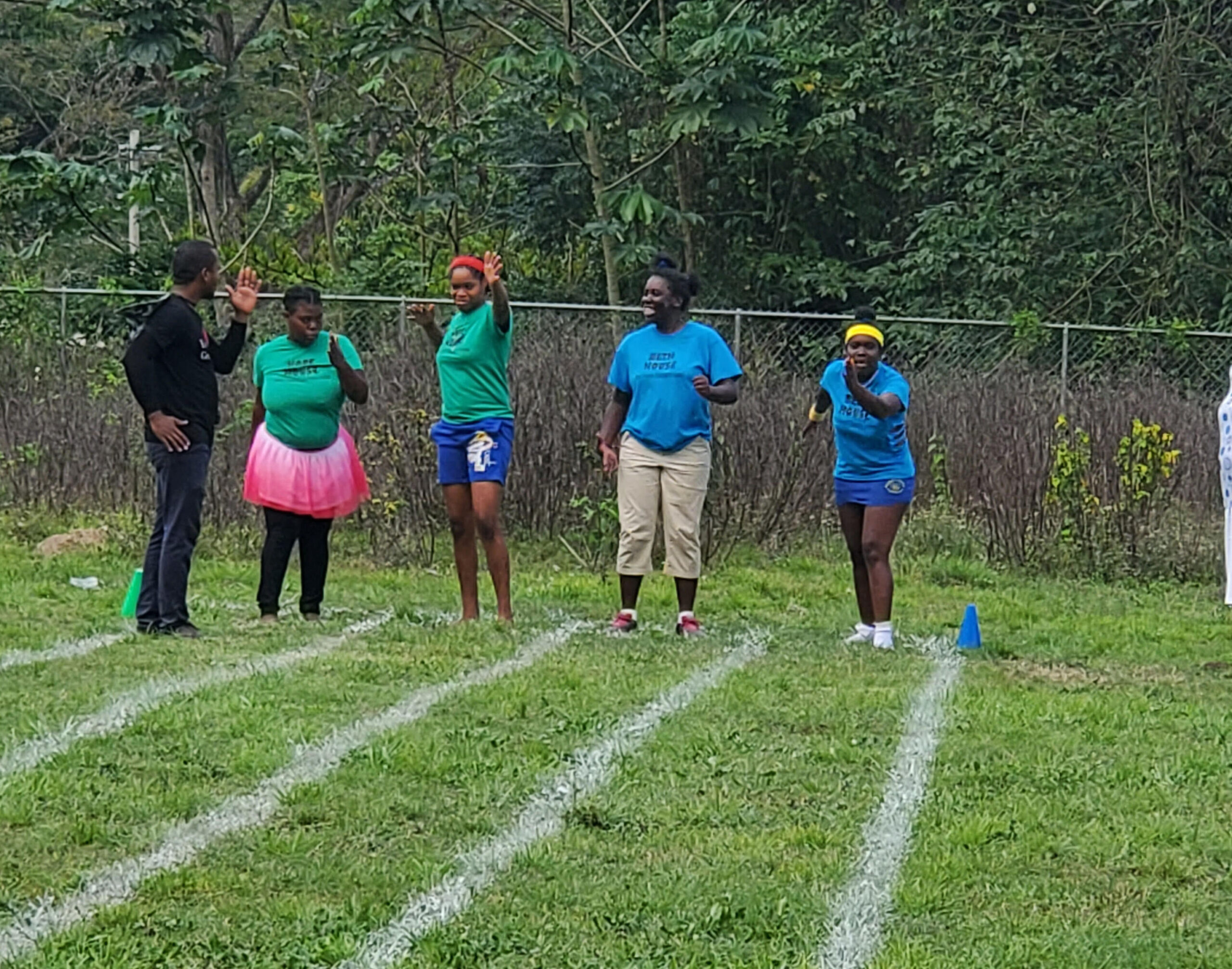
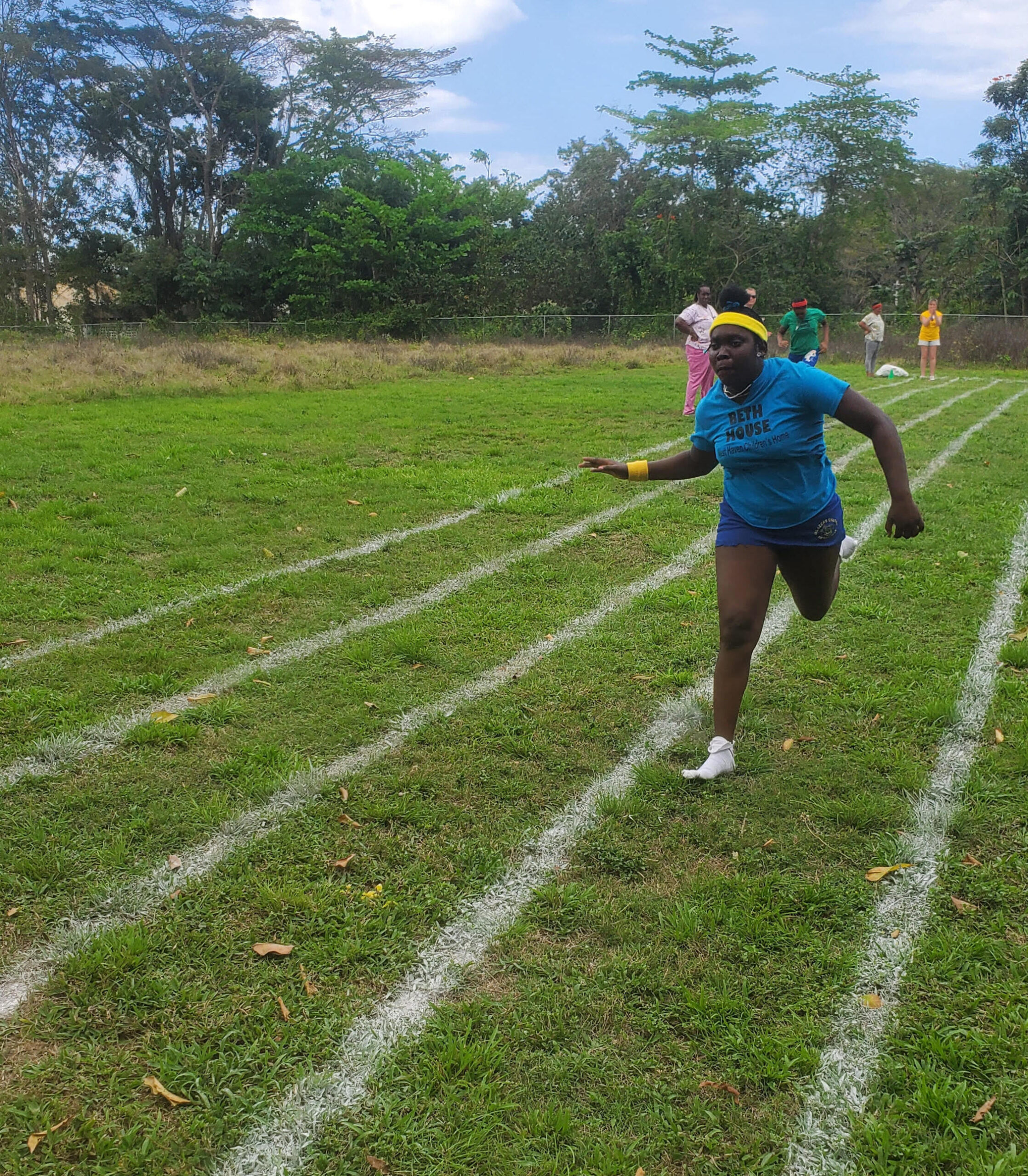
Seed and Fertilizer Provided
March 7, 2024
By Robert Klima
Food insecurity is a very real concern in many developing countries. For the second year in a row, CDFI has provided the funds to purchase maize (corn) and bean seeds, as well as fertilizer, for all of the families in our Kenya program.
Each family has been able to rent a small portion of land upon which to plant these seeds. They work hard to prepare the land, using only simple hoes, so that the planting can be done prior to the spring rains in March. Often this work is done by only mothers and grandmothers.
When the Mission Team visited in January, 2024, we learned that the food grown last year lasted the entire year for many families. We saw maize being dried out on tarps so that it could be taken to someone with a grinding machine to produce flour. The cost per family for these seeds and fertilizer was $42.00.
In addition to providing much needed food, this program gives the families a sense of self sufficiency, which greatly enhances their self-worth and happiness. We could see the joy and pride on their faces as they shared their stories with our team.
CDFI is thankful to the Lord and to all of the donors who made this possible.
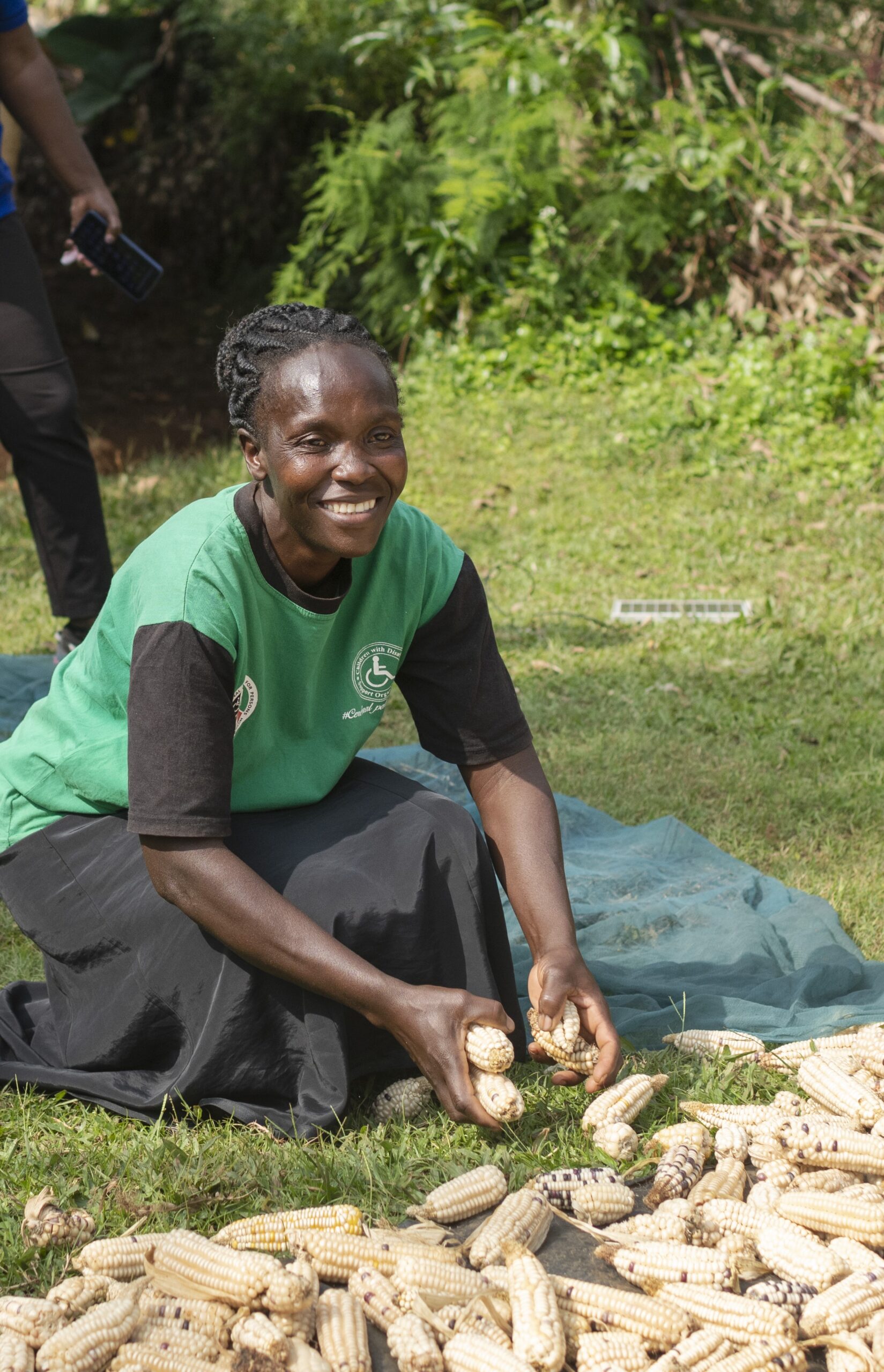
Foster Home Update
March 2, 2024
By Keith Murray
The CDFI Mission Team which visited in January, 2024, observed the current Foster Home built upon the CDFI property in Kenya. The site is located on about one acre of fully fenced land. The site now consists of one building which contains a kitchen and dormitory space for foster children, an outbuilding used for storage, a pavilion built with funds provided by Microenterprise efforts, and a bath house with new flush toilets and showers. The site also contains a garden which is producing vegetables, and there is a well and water system large enough to serve the community.
After walking the land, CDFI President Bob Klima observed, “I am amazed at what has been accomplished since this land was purchased just one and one half years ago.”
Future plans are to obtain and install two washing machines and a large dryer, and to build a single level building to house the CDFI office and meeting room, and to build a better equipped foster resident dormitory space.
Plans to build a much larger building on site were scrapped. “We just want to build a small house for the children we have,” said Judith Olimba, CDFI Kenya Program Director. “We are creating awareness with the parents of special needs children – you don’t have to abandon your child – you can come to a support group and we will show you what to do and will help you to do it. That has really helped us. In the last two years, we have not had an abandonment. I felt that we should not go and build a large house because we do not want to welcome abandonment. We just want to build a small house for the children we have which were previously abandoned.”
Plans for construction have been developed, and CDFI is beginning to seek the funding to build the new facility.
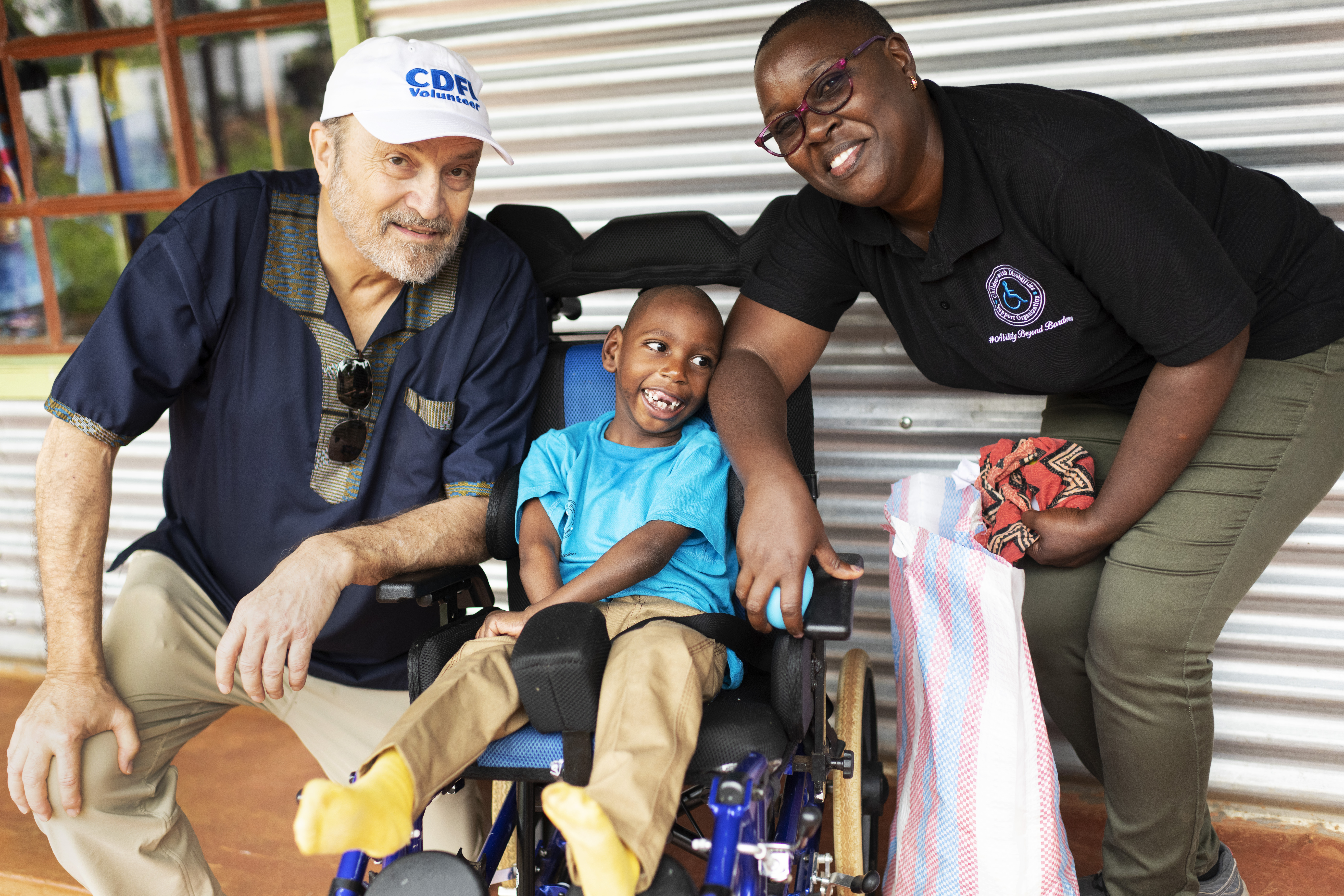
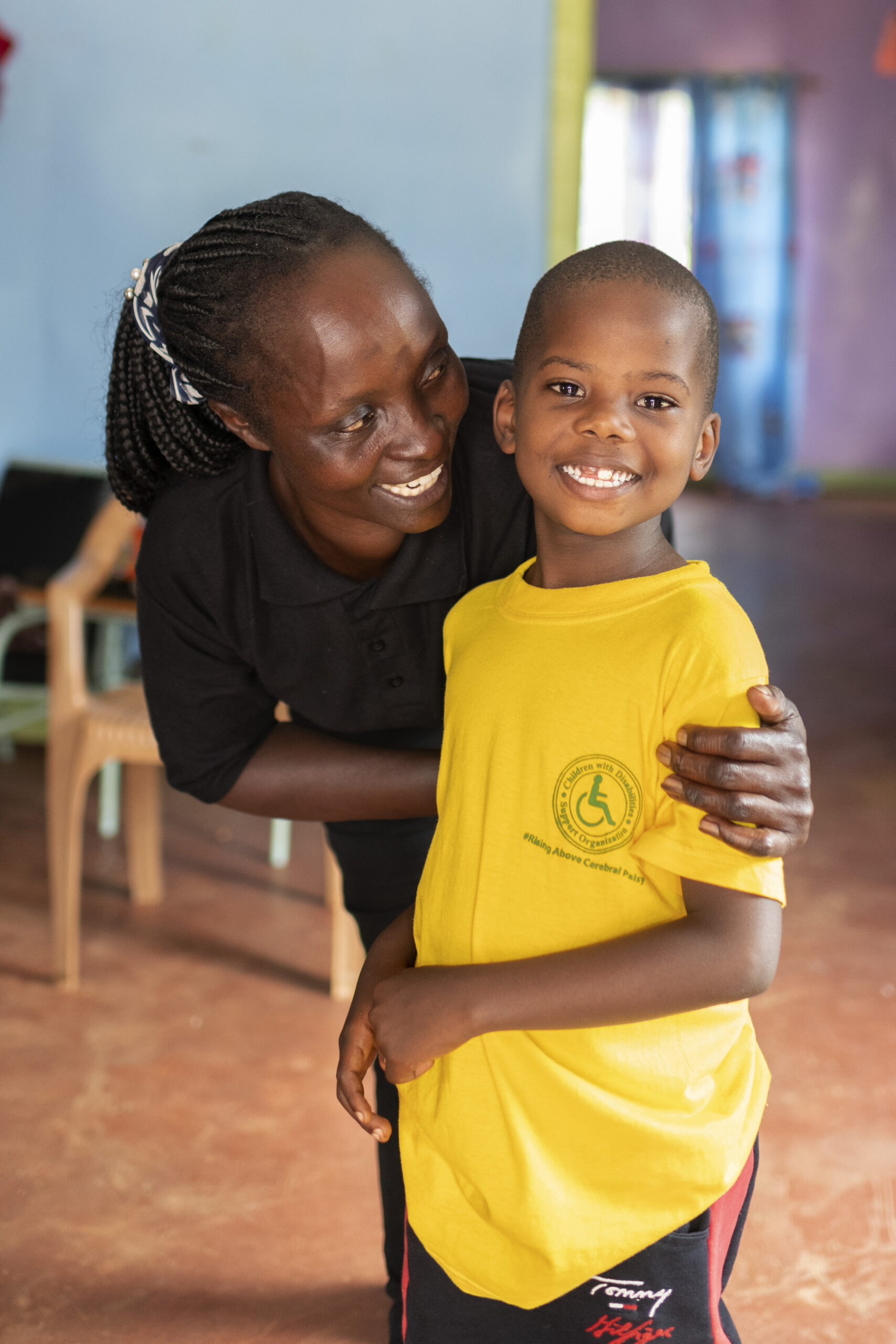
School Visits
March 2, 2024
By Keith Murray
Of the 250 children in Kenya receiving support from CDFI, 162 are in schools and 88 are in home-based care.
Those in home-based care are usually too young or their disability is too severe for them to be in school. These children are visited monthly and are supplied with diapers and some funds to help with their care. During the visit, the CDFI staff provides counselling and encouragement to the parents and leads them in a time of Bible reading and prayer to aid in their spiritual growth. They discuss any issues which need to be addressed.
The 162 children who can benefit from school are enrolled in 21 different schools located throughout a large geographical area served by the ministry. The schools are residential, with three terms of three months each per year separated by one month during which the children are at home. The CDFI Mission Team in January 2024, visited four of these schools. The administrators of the schools all emphasized the importance of inclusion and teaching vocational skills that will help the students to lead productive lives. In addition to studying the standard reading, writing, arithmetic and similar core subjects, we observed classes in sewing, knitting and mat making. Some students are also trained in cooking and home keeping to enhance their ability to be employed and to live productive lives.
At the St. Anthony School, we were encouraged to see a sign which read, “Disability is not an Inability.” At the School for the visually impaired, we saw a sign which read “Opportunity not Sympathy.” And at the Ebuyalu Special School for the Intellectually Challenged, the school motto was, “Provide me with the Relevant Opportunities to Unfold my Potential.”
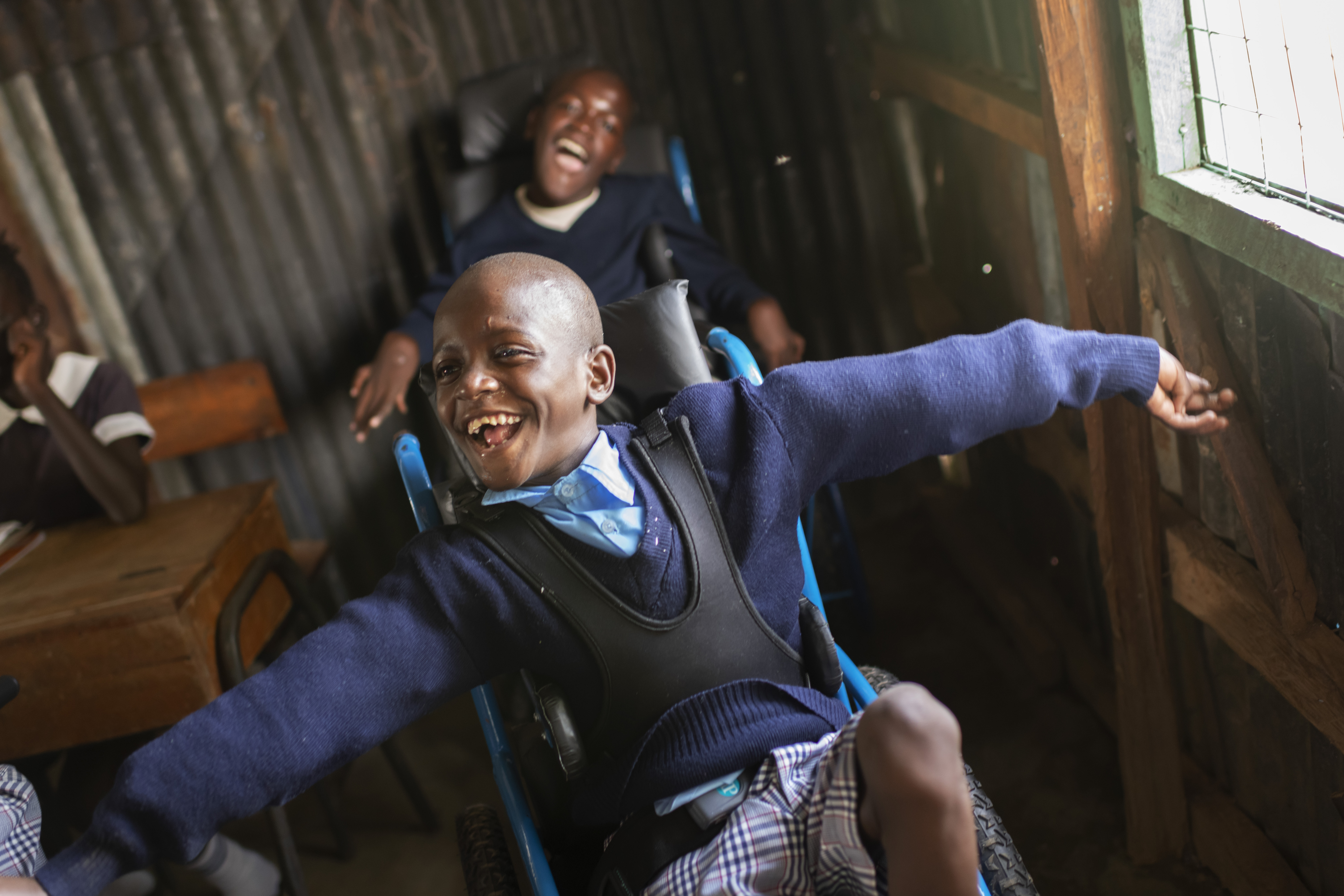
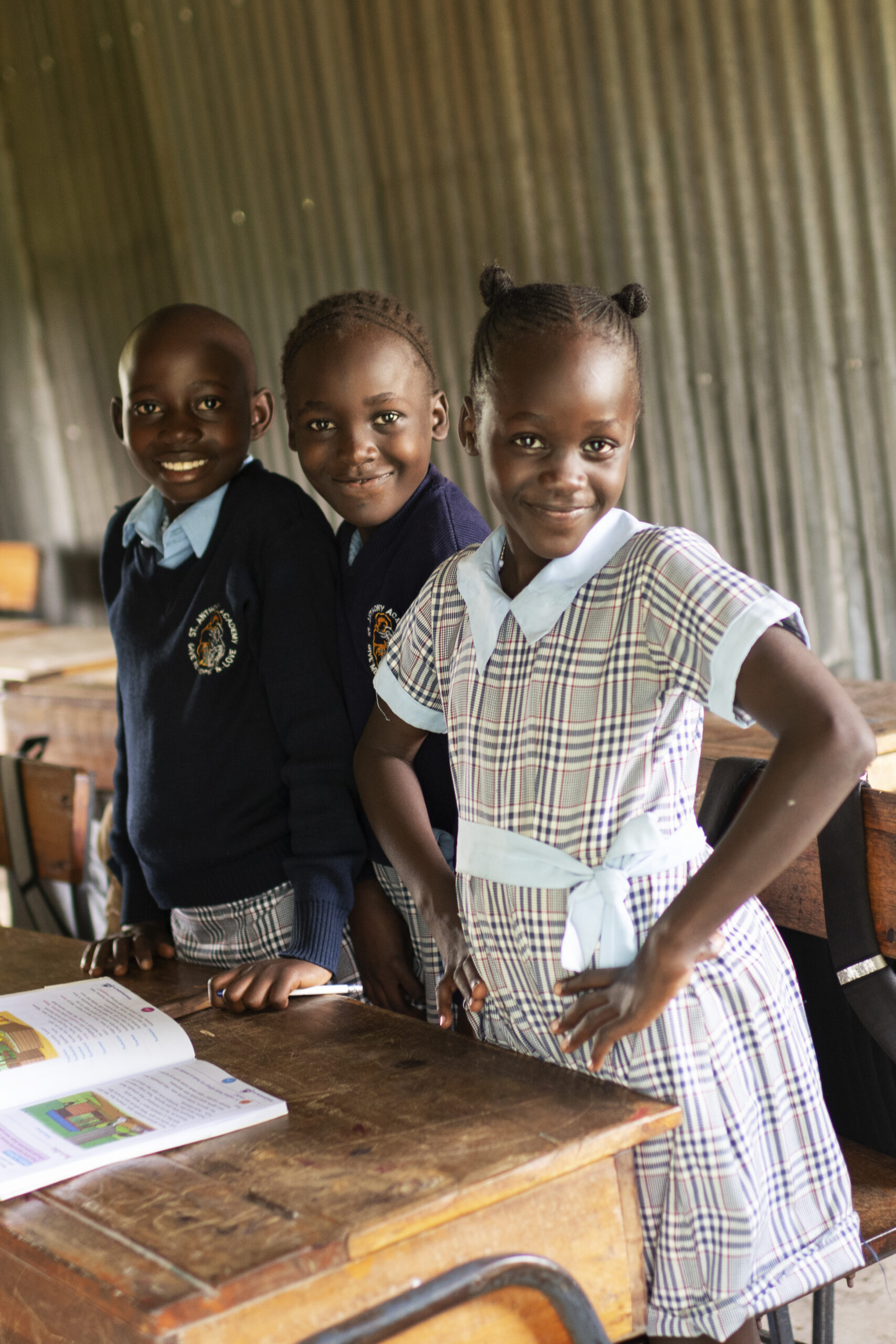
Support Groups Bring Many to Saving Faith
February 28, 2024
By Robert Klima and Keith Murray
More than 250 disabled children are currently in the CDFI program in Kenya. The parents and caregivers of these children are divided into four support groups based upon where they live. These are the Vihiga/Sabatia support group, the Hamisi support group, the Transnzoia support group and the Bunyore support group.
Each group elects a chairperson, a second leader, a treasurer, a chaplain and a coordinator. And each support group is divided into smaller Bible Study groups. Every parent or caregiver is assigned to one of these Bible Study Groups. It is not possible to participate in the program without being a member of a Bible Study Group.
On our recent visit to Kenya, we observed the remarkable joy of salvation among all of the parents in these groups. We also heard testimonies of how parents came to know the Lord through this ministry. We were particularly struck by the story of a Muslim woman who came to faith because of the love of Christ shown to her and the sharing of God’s Word with her.
Some people have asked us whether CDFI is an evangelistic organization and whether or not we preach the gospel. We are reminded of the quotation often attributed to St. Francis: “Always preach the gospel. When necessary, use words.” Unlike the Muslim organizations in Kenya, CDFI does not require a statement of faith for a parent to be included in the program, but we do require the parent to be in a Bible Study Group. Too many people think that evangelism is just preaching the Gospel. But it is caring for people in love, and caring for their children whom they love, that makes them receptive to the Gospel. This is how they see the love of Christ for them personally, and that is what brings them to faith.
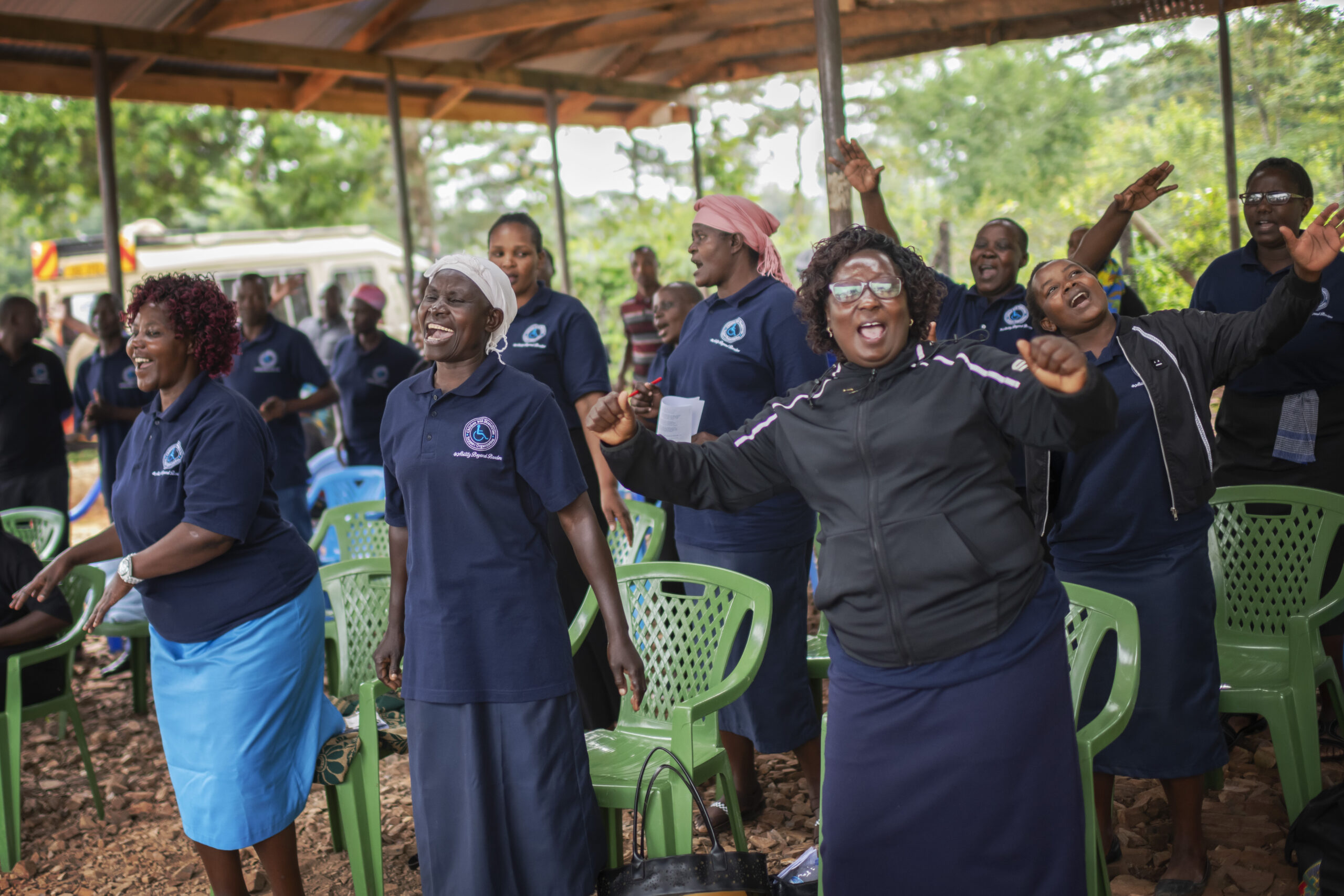
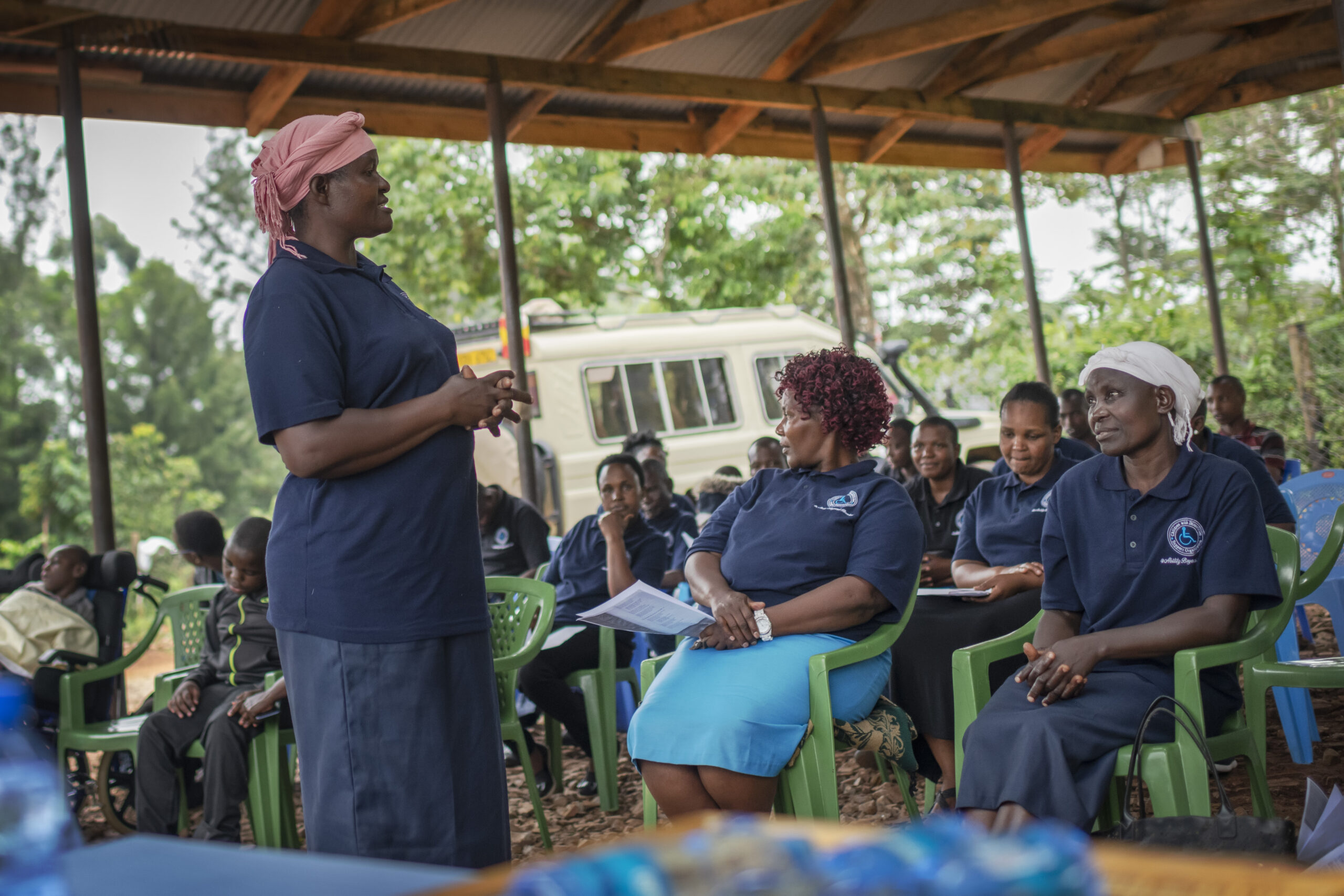
CDFI Provides Bedding for Children
February 28, 2024
By Keith Murray
CDFI recently recognized the need for better bedding for the disabled children whom we serve. Most of these children were sleeping either on thin mats or directly on the dirt floors of the simple homes where they live. We were able to raise the funds to purchase a mattress, sheets, a blanket, a pillow and mosquito netting for every child in the program.
Our staff in Kenya arranged meetings with three of the four support groups so that our team could distribute the bedding to the parents and caregivers on our visit. We were all struck by the sheer joy and gratitude which we saw for these gifts, which to us seemed small, but to them seemed wonderful. The parents broke out in grateful song, praising God as they received the bedding.
The experience is best captured through the comments of those who participated in the distribution.
“We saw joy and sheer gratitude. Each set of bedding became a celebration. They came dancing and singing and praising God.” Susan Beckworth.
“We saw so much happiness. We couldn’t stop smiling. Seeing the joy in their faces – it was infectious. Makes you want to do more.” Louisa Murray.
“Very humbling experience. I could feel the Holy Spirit in it. This reinvigorated me to go on more missions. Showing up gives them hope someone cares about them.” Keith Morrison.
“Watching them made us very happy. They do not take things for granted – they treasure things.” Nancy Morrison.
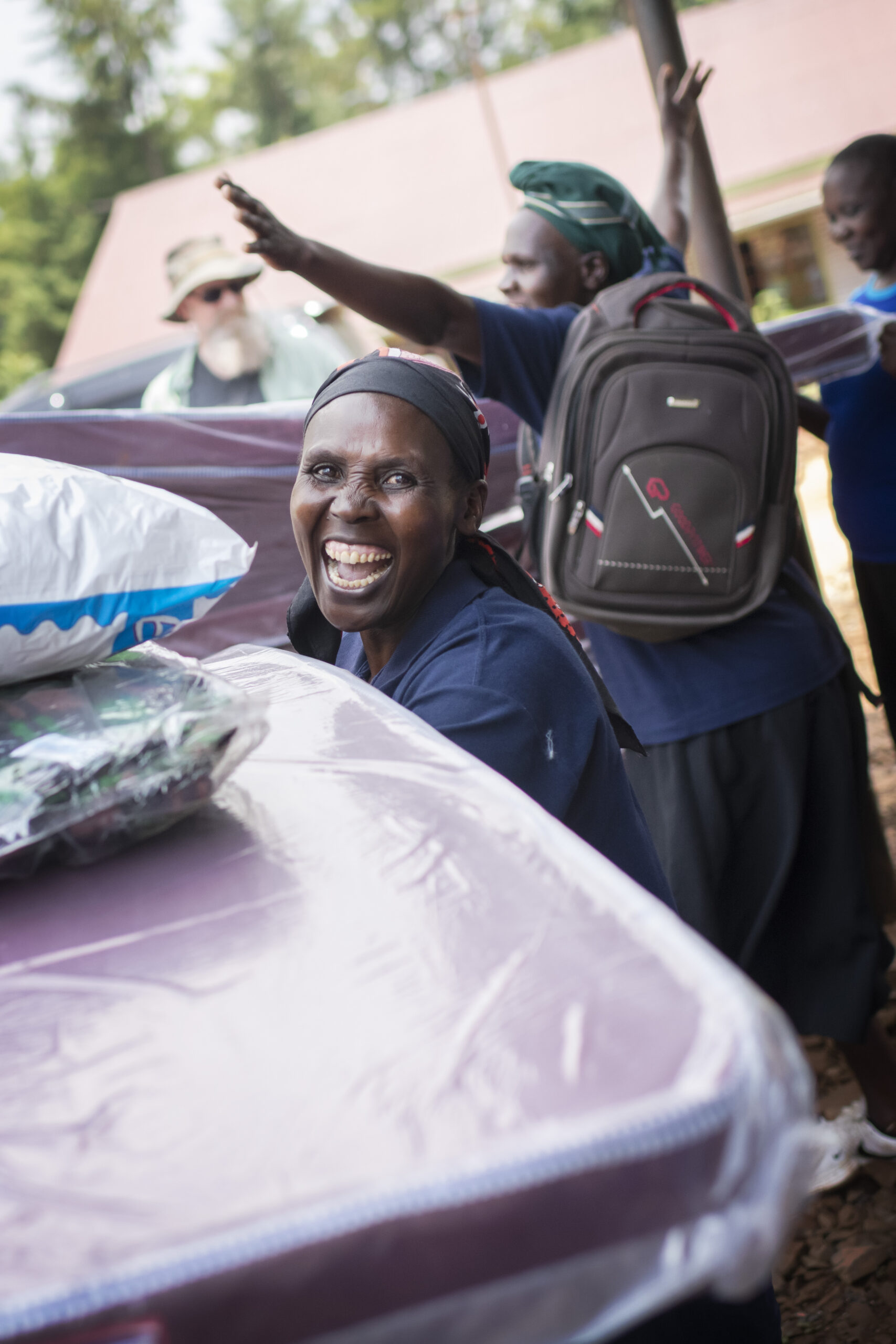
Interview with Judith Olimba, Kenya Program Director
February 28, 2024
By Robert Klima
On our January, 2024 visit to Kenya, the following interview took place with Judith Olimba, our Program Director in Kenya. In the interview, she discusses the spiritual impact of the ministry.
Judith Olimba – “We have taught them to pray. We taught them to go to their various churches.”
Robert Klima – That’s interesting. I did not realize that you give them that instruction specifically. So you are teaching them to adopt the faith. Are you specifically sharing the gospel and are people accepting Christ?”
Judith Olimba – Yes. We also selected chaplains for each support group. Parents have really grown in the faith. The chaplains are taking care of the little prayer groups in their support groups.”
Robert Klima – “I love the concept of fruit in scripture and to see how it grows and spreads. You are really spreading hope. People are seeing that they don’t have to despair, that there is hope, there is help.”
Judith Olimba – “That is what has stopped abandonment. It is God that created this child. He loves me and He loves my child. That is what we are spreading. God loves you and loves the child.”
Louisa Murray – “And I’m sure a parent of a disabled child is so afraid and that this is why they abandoned them. They fear that they can’t care for them, and feel that they don’t have an option. And you are giving them that option and that hope that they never had before.”
Robert Klima – “And they tend to be isolated.”
Judith Olimba – And some of them have been separated from their husbands. When we began, there was a saying that when you have a disabled child, it was a bad omen. We felt the only way to undo the wrong is to bring the right thing – to bring the Gospel, to preach Christ. Christ brings hope. It’s only the Holy Spirit that knows how to walk in the hearts of these people. So we just have to surrender it to the Holy Ghost, to leave it to God. The foundation is the Gospel of Jesus Christ. So every time we meet, they already had their Word of God, they have prayed, they have given their testimonies, they have talked about their microenterprises, they have talked about their children who are going to schools and those who are at home. That is how we get reports. Because there are so many – we cannot visit each of them. So when they come together, it’s easy to know where we are really educated to go.
We had four Muslims and two of them took off with their children because of threats from the Mosque. Then I showed you the little microenterprise from one of them by the road from Kisumu. We will see that lady – she is a Muslim lady. She is a single mother. She just left her husband and continues to take care of her child. But she has continued to hold onto the Muslim faith. We continue to love her and allow her to hear the Gospel when we preach it. Because I believe when we are preaching the Gospel, we are planting seed. And we don’t know how it is going to grow. We don’t know the fruit, but God knows. So we can continue to preach. We pray and she is there. She prays with us.
There is another one also who left the Muslim faith and got born again. We will hear her testimony on Sunday. Her husband left her. He threatened her that if you don’t stop going to get those things from those Christians, then I am leaving you. She said, ‘It’s ok. Bye.’ Actually she went through some brokenness of course. It’s a process. We took her in. We mentored her and we also made her one of the leaders in one of the prayer groups. She has continued well. She is doing well with her microenterprise. She sells porridge and a mixture of maize and beans – it’s a meal – that she sells to primary kids who can’t go home for lunch. Her child is in a special school. When the child is at school she has her business. When the child comes back home, there is no business. So she has been able to find a balance.”
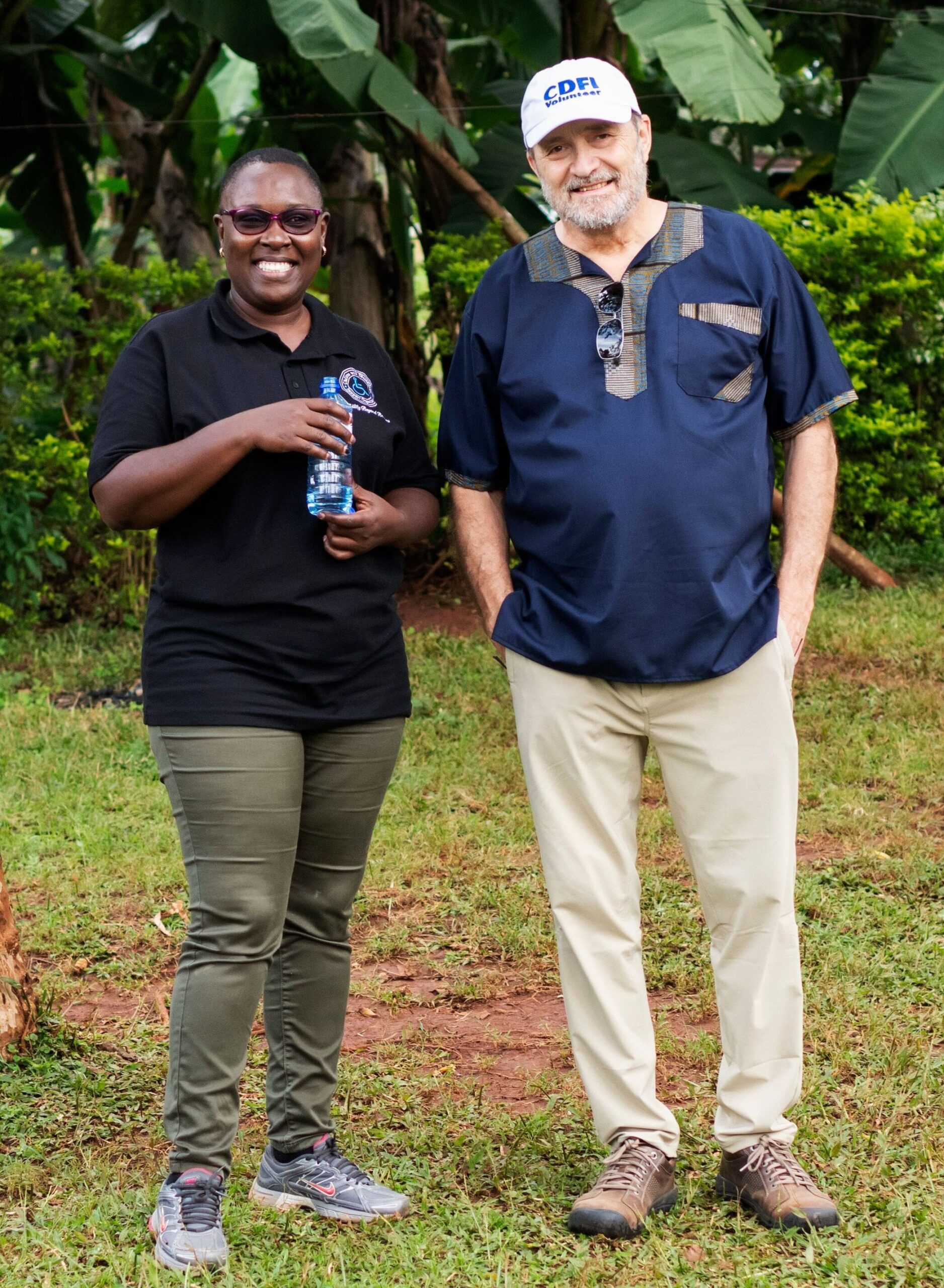
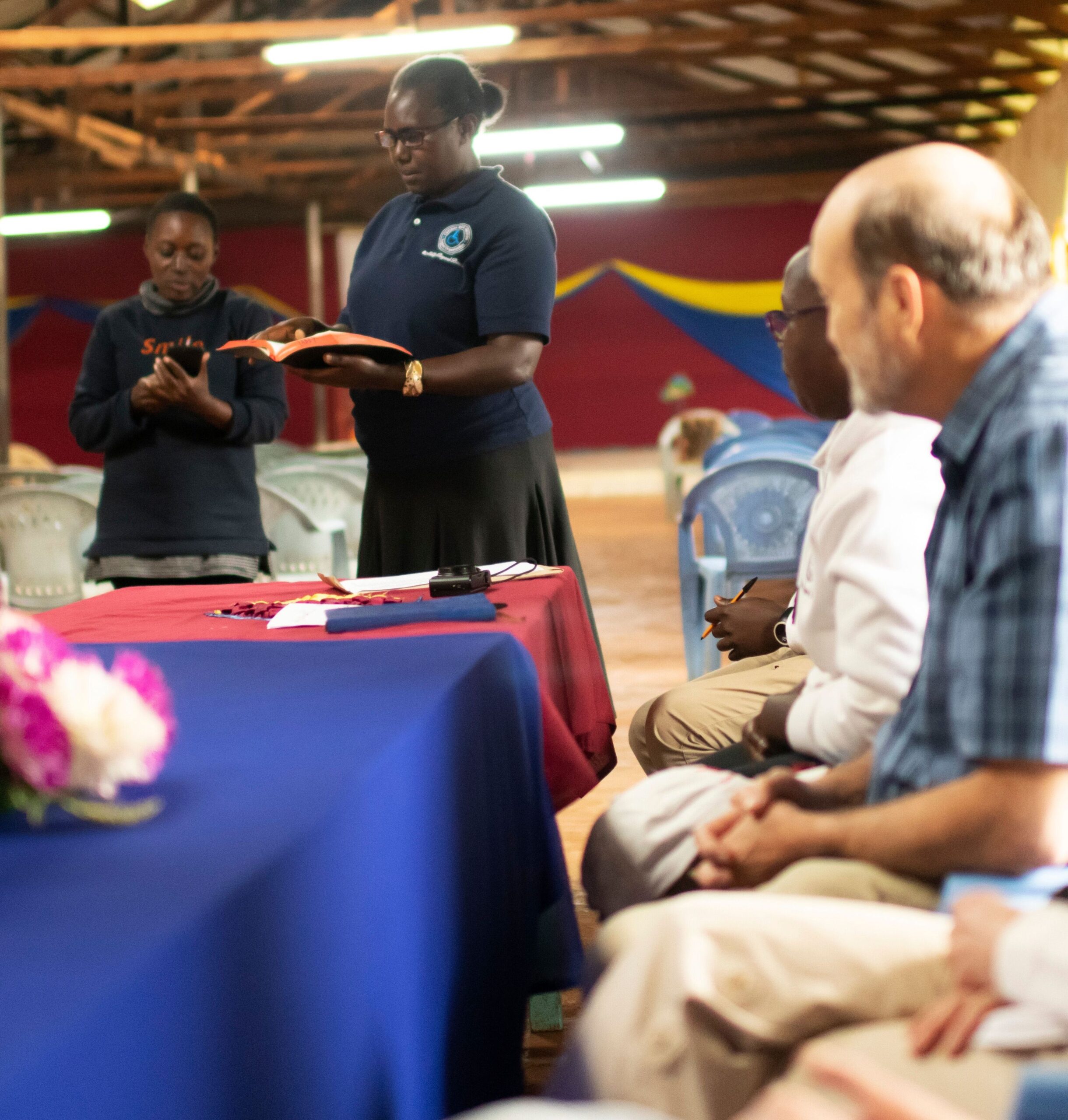
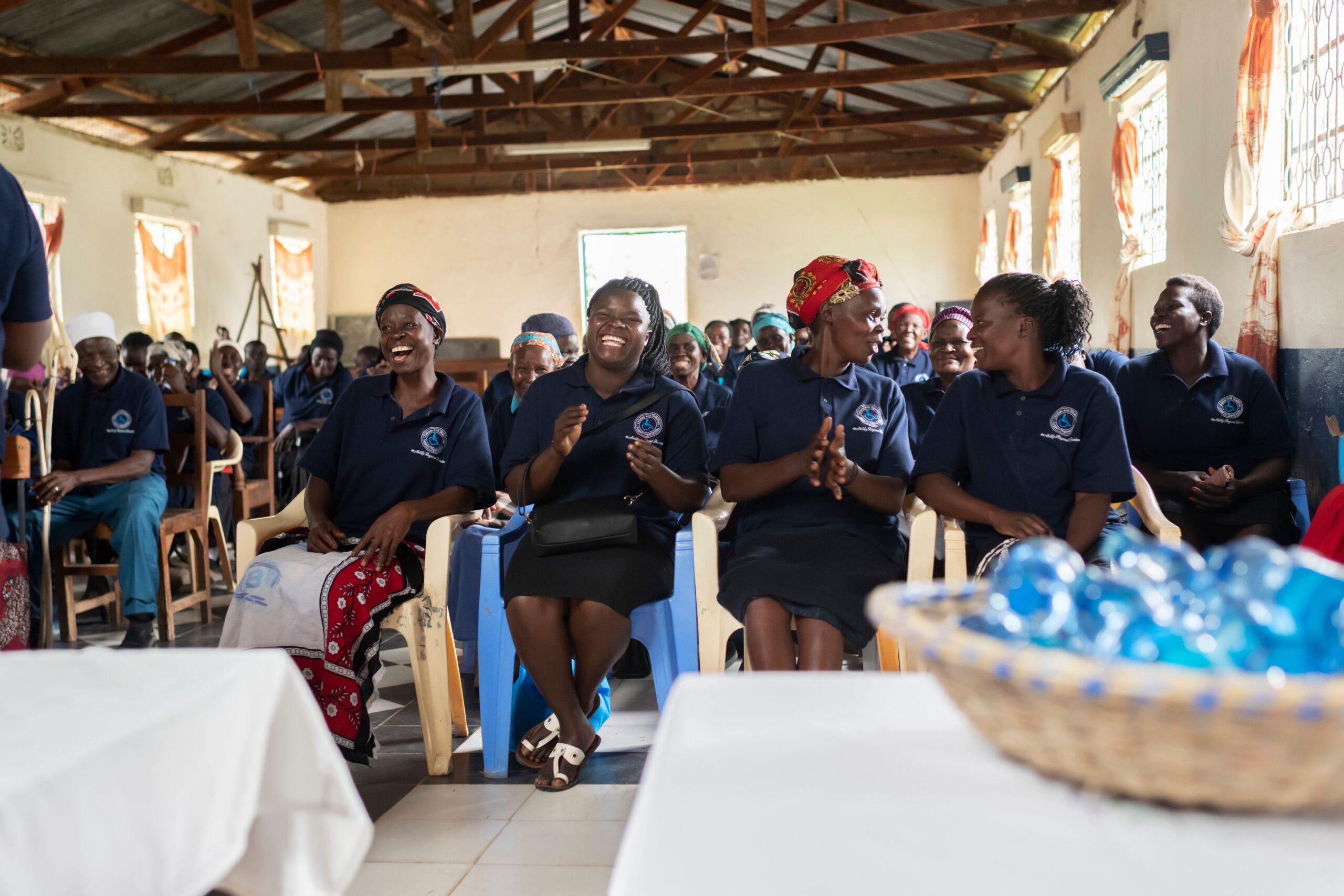
Microenterprise Success Leads to Building of Pavilion
February 26, 2024
By Keith Murray
CDFI provided seed capital to assist parents of children in the program to establish small businesses. Without this donation, these parents would not have been able to obtain a loan from any other source. By paying back the loans at 110%, two important things were accomplished: More people could get loans and a positive balance accrued in the bank accounts established and managed by the support groups.
The Mbale Support Group has over 80 different enterprises which range from selling goats milk, raising poultry, dairy farming, raising pigs and other agricultural efforts.
The Microenterprise Program has been so successful that the Mbale Support Group was able to build a Pavilion on the CDFI property. This Pavilion is 30 by 48 feet in size and can accommodate over 150 people.
The Microenterprise coordinator, Phelister Omuga, said “during the rainy season we are sheltered and other times of the year it keeps us out of the sun. The parents’ projects did this – all from profits from Microenterprise.” The Pavilion is the monthly meeting place for the Vihiga/Sabatia Support Group. The next goal, according to Ms. Omuga, is to raise funds to put in a floor in the Pavilion.
It was evident to the CDFI team that visited in January, 2024, that the Pavilion was a great source of the pride of accomplishment for these parents in the program. By improving the circumstances where they can meet, the goals of honoring God, Bible Study, preaching the gospel, as well as program teaching and coordination are facilitated.
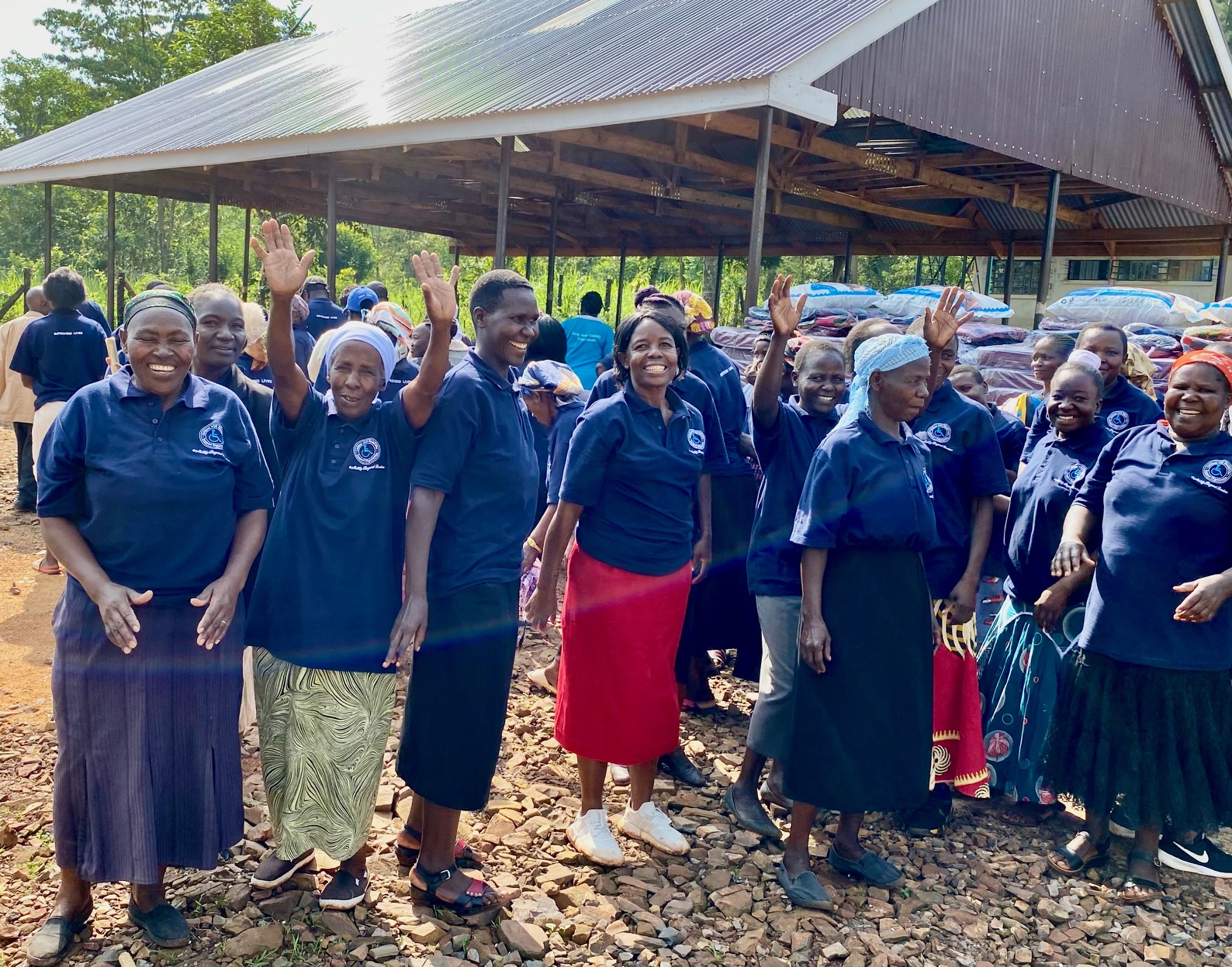
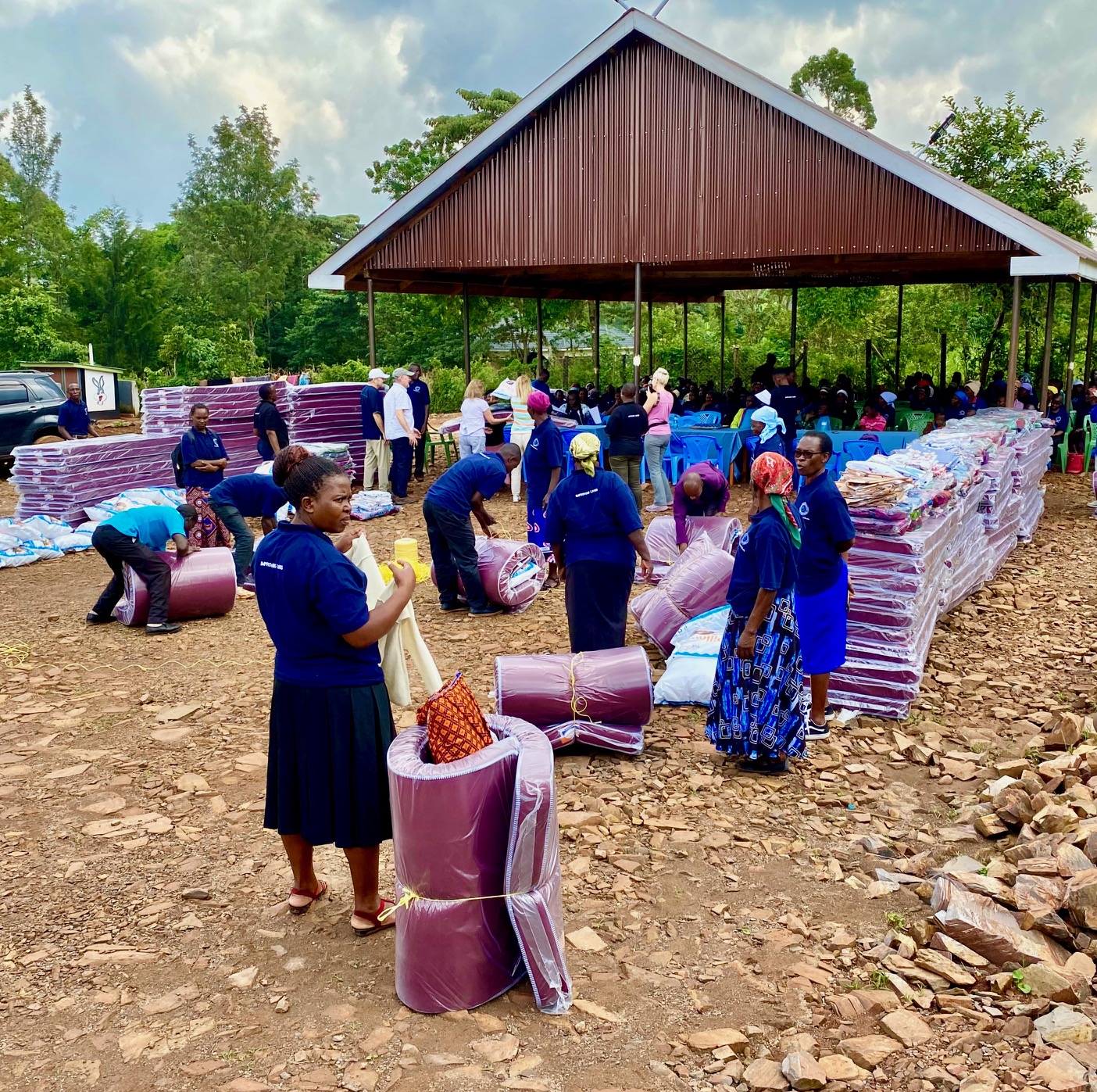
The Gift of Light
April 8, 2022
By Holly Creasey
Many of us have never used a kerosene lamp, and we think of them now as outdated, unsafe, or only something we would read about in books. The use of kerosene lanterns, however, is a part of normal life for many families living in rural Kenya where a lack of electricity can present great challenges to even basic survival. Our World in Data estimates there are 940 million people who lack access to electricity. These numbers represent millions of individuals living in poverty, including Felix Nyaleso, who is a beneficiary of the work of Children with Disabilities Fund International (CDFI) in Kenya.
Felix is seven years old, the youngest of five siblings, and lives with Down syndrome. His parents both perform odd jobs to make a living, opportunities for which were made nearly impossible during Covid pandemic shut downs. Until recently, Felix’s family used a kerosene lamp with a matchbox to light their home at night. These kerosene lamps are common in rural Kenya, but they are expensive, as much of the family’s meager income must be spent on kerosene and matches to light the lamps. In addition to being expensive, kerosene can be very unsafe, as high levels of soot and chemicals are leached out into the home. With much of the Nyaleso family’s income going towards kerosene and matches, little was left for basic necessities for the family, let alone to meet Felix’s needs, which are far more complex.
Recently, through donor contributions, CDFI was been able to purchase solar lights not only for Felix’s family, but for each of the more than 200 families in CDFI’s program in rural Kenya. All of these families have at least one child with special needs. The solar lights only require 1 hour of sunlight in order to provide 8 hours of light. By providing these solar lights to families like Felix’s, CDFI is able to relieve some financial burden, positively impact the health of the child and family, and enable parents and caregivers to effectively attend to their disabled child during nighttime hours.
